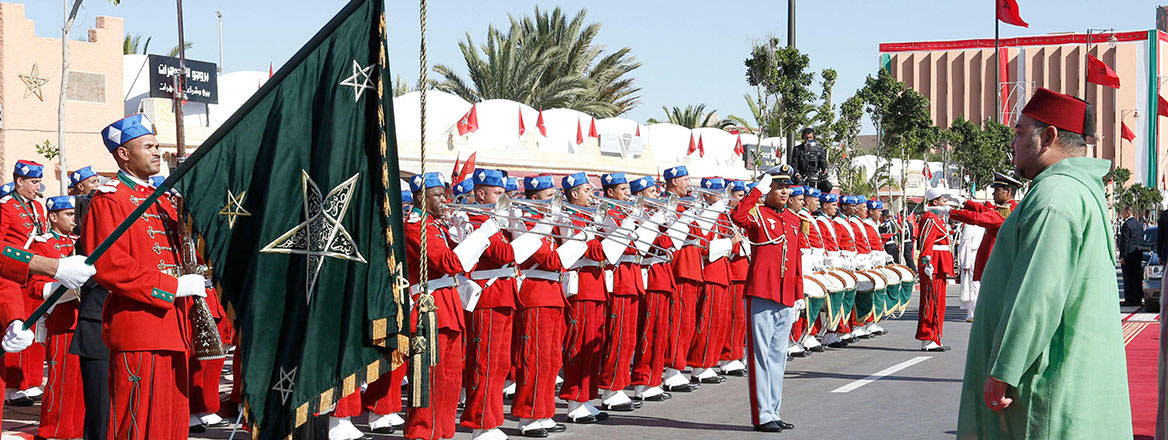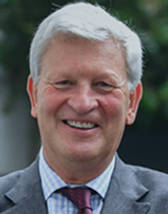The UK Should Support Morocco’s Autonomy Plan for Western Sahara
The situation in the Western Sahara might appear to be just another ‘frozen conflict’ in a world increasingly defined by crises. But there is a workable solution on the table, and the UK should give the Moroccan plan its full backing.
Today’s dangerous and uncertain international situation is characterised by what some commentators have termed ‘polycrises’: interconnected challenges to security, stability and global prosperity that feed off each other to produce a daunting cycle of instability and conflict. We are facing these in the Middle East, in the Ukraine–Russia conflict, in the lingering threat from the Covid-19 pandemic, and in the consequences and implications of climate change. Making these ‘polycrises’ even more complex and intractable are a series of ‘frozen conflicts’ which, over the decades, have resisted the best efforts of the UN and other intermediaries to bring them to a conclusion. These ‘frozen conflicts’ are often the result of militant groups pursuing their own sectarian agendas, supported by external parties acting in their own selfish interests. Failure to settle such disputes has led to great human suffering, bitterness, grievance and frustration; contributed to regional political and military tensions and confrontation; and generated instability, extremism, terrorism and violence. One such ‘frozen conflict’ is in the Western Sahara.
While the history of the Western Sahara region is complex, centuries of economic and political ties have linked it with the Sultans of Morocco since well before the historically brief periods of French and Spanish colonisation. Morocco regained its independence from France in 1956, while in 1975, under the Madrid Accords, Spain relinquished control of the Saharan provinces. Only then did the Frente Polisario come into being, claiming to be a ‘liberation movement’ and supported and funded by Morocco’s regional competitor, Algeria. The international community has generally described Polisario as a ‘separatist movement’.
In April 1991, after periodic outbreaks of fighting, the UN – seeking a peaceful resolution to the issue – set up the UN Mission for the Referendum in Western Sahara (MINURSO). This initially focused on monitoring the ceasefire agreed between Morocco and Polisario, together with its political organisation, the Sahrawi Arab Democratic Republic (SADR), while attempting to oversee a referendum on self-determination for the population of the Western Sahara. However, after 20 years of failed attempts, the UN Security Council concluded that a settlement plan based on a referendum was unworkable because a credible identification process was rendered impossible by the tribal and nomadic nature of the Saharan population, together with demographic changes over the previous 30 years.
While Morocco’s presence in the Western Sahara may face some criticism, the country has made clear its commitment to the region over several decades of significant investment
Following a paralysing impasse and responding to calls from the international community for progress toward a political solution, Morocco prepared an initiative for negotiating autonomy in the Sahara, while respecting its own sovereign interests. The Moroccan Autonomy Plan for Western Sahara was submitted to the UN Security Council in April 2007, representing a basis for negotiation and a vision for shared prosperity across the North African region. At its heart was the proposal that the Sahrawis would run their own government under the umbrella of Moroccan sovereignty, excepting in the areas of defence and foreign affairs. This is very much in line with Morocco’s overall internal political process, in implementation since 2010, of devolving power from the national government to regional and municipal authorities. Resolution of the Western Sahara issue would contribute to the security, stability and prosperity of the whole region, and in doing so would combat the rise in Islamic fundamentalism and extremism that feeds off grievances and poverty. 17 years later, this Moroccan initiative remains the only realistic, credible, forward-looking plan for the region that is on the table. It is anchored in a commitment to a promising political and economic future for the population, with respect for the rule of law, democratic procedures and sustained development, and will be implemented on the basis of an open consultation in accordance with the UN Charter and the principle of self-determination.
While Morocco’s presence in the Western Sahara may face some criticism, the country has made clear its commitment to the region over several decades of significant investment, constructing extensive economic and communications infrastructure and by generating thousands of jobs. For every £1 raised in taxes from the Western Sahara, the region has received around £7 in return, making it one of the most developed regions in Morocco. A turnout of over 66% during the last national elections in September 2021 was a clear indication of the population’s successful integration.
Key UK allies including France, Germany, Spain, the Netherlands and the US have expressed their support for Morocco’s Autonomy Plan, seeing it as the best way to bring a future of peace and prosperity to the population and an end to the dispute. The majority of Arab states – as well as numerous African and Caribbean countries – take the same position, and many of them have opened consulates in the south of Morocco. Those who oppose the initiative have offered no credible alternative that puts the wellbeing and prosperity of the Sahrawis at its heart, while those who are ‘sitting on the fence’ are often using the issue as part of wider regional agendas.
The Moroccan Autonomy Plan for Western Sahara remains the only credible, lasting, realistic and constructive solution to the Western Sahara conflict
This is both inhumane and dangerous. The large refugee population of around 100,000 (not all Sahrawis) are mostly confined to a collection of camps around Tindouf, across the border in Algeria, where they live in squalid conditions, deprived of a future and powerless to effect change. Although ‘run’ by Polisario as part of the SADR, they are almost totally dependent on international humanitarian aid. The choices – especially among the young – are debilitating inertia, extremism and violence, or migration. A solution exists with the implementation of the Moroccan Autonomy Plan for Western Sahara, which offers the prospect of employment and prosperity, while the alternatives – stasis or a return to violence – offer nothing to the Sahrawis, while posing a serious risk to security and stability in the Maghreb, the Sahel and ultimately the whole Euro-Mediterranean region. This threat to stability and security is already being exacerbated and accelerated by the malign influence and activities of the Iranian Qods Force and its Hezbollah proxies. The Iran–Hezbollah–Polisario nexus feeds on this security threat.
For the UK and other responsible leaders of the international community, the region’s security, stability and prosperity is of vital interest. The UK and Morocco increasingly share common ground in a commitment to the rule of law, respect for international human rights, religious tolerance and pluralism, the linkage between prosperity and stability, and sustainable and green development agendas. Morocco, alongside the UK, has declared its support for Ukraine in its fight against Russian aggression, unlike others in the region. There is also a close alignment on issues of military, energy and food security. The two countries’ current productive relations build on 300 years of trading history. This was confirmed in their 2019 Association Agreement, which also covers the Moroccan Sahara, in particular the region’s flourishing maritime and fishing economy. Both parties will benefit significantly, and the dismissal by the UK Court of Appeal of a challenge to the agreement by The Western Sahara Campaign now provides a guarantee for UK companies looking to work in, invest in and export to Morocco.
The Moroccan Autonomy Plan for Western Sahara remains the only credible, lasting, realistic and constructive solution to the Western Sahara conflict. It is increasingly being recognised as such by those in the international community who understand the humanitarian costs and security risks of allowing this ‘frozen conflict’ to continue. In the current environment, the opponents of Morocco’s initiative appear to have questionable motives.
The UK’s own principles with regard to self-determination and its overseas territories will in no way be compromised by UK government support for Morocco’s initiative. The UK should support Morocco’s Autonomy Plan for Western Sahara.
The views expressed in this Commentary are the author’s, and do not represent those of RUSI or any other institution.
Have an idea for a Commentary you’d like to write for us? Send a short pitch to commentaries@rusi.org and we’ll get back to you if it fits into our research interests. Full guidelines for contributors can be found here.
WRITTEN BY
Sir Simon Mayall KBE CB
- Jim McLeanMedia Relations Manager+44 (0)7917 373 069JimMc@rusi.org


